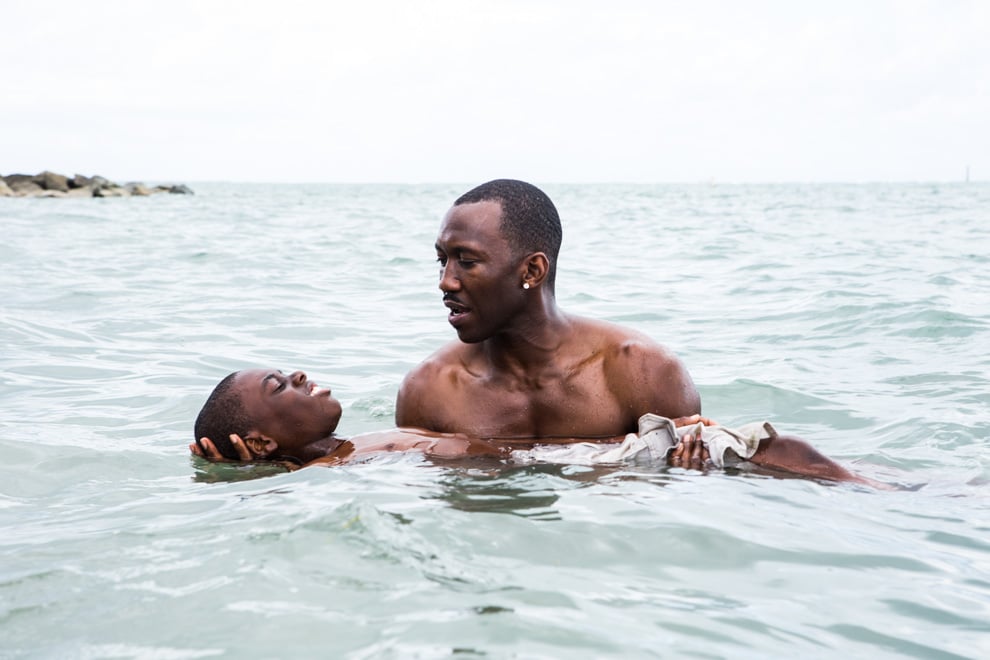Calling “Moonlight” a masterpiece would be pointless. Not because it doesn’t deserve the praise — it clearly does – but because by the time it officially hits theaters, it will have been heralded by every major paper and critic of note. If you in any way care about cinema as an art form, you should see this film and probably already have plans to do so.
Like “Boyhood” before it, “Moonlight” attempts to chronicle the life of a young man in modern America and succeeds in creating an entire world rich with character and possibility around him. And it does so without indulging in any clichés or shortcuts. It feels like the film pulls its influences not from cinematic history, but from life itself. It is a work so utterly without precedent that one cannot successfully predict a single moment in the story. If you try, you will fail. Every action by every character is startling original and yet, completely authentic.
But “Moonlight” sets itself up against perhaps an even more difficult task than “Boyhood.” The young man at the center of our story — christened Chiron by his manipulative mother but given various names over the years by his friends — is not only a poor African-American male growing up on the outskirts of Miami. He is also a deeply repressed homosexual. Not only does “Moonlight” succeed in creating a rich array of interesting and complex characters, it does so while anchoring itself solely to a character that continues to retreat deeper and deeper within himself. It is a testament to the considerable talent on display throughout the film that it is able to subtly communicate Chiron’s hopes and fears while staying true to the fact that he is a remarkably guarded human being.
Like Chiron, director Barry Jenkins is an African-American who grew up in Miami. And while he denies that the film is autobiographical — as Jenkins has stated in interviews, he is not gay — the film has a wonderfully rich sense of specificity and place that could only be achieved through a remarkable intimacy with the world one is depicting.
And it is this intimacy that stood out to me. Countless other critics have already praised the work’s cinematography, acting, score and various other formal qualities with a grace and wit that I cannot match. And I can vouch that their approval is well earned. But what I can say, with a degree of intimacy that I don’t feel most other critics can equal, is that Jenkins’ “Moonlight” touched me as the most moving portrayal of my hometown on film.
Most works set in Miami are works of abundance. The frames are packed with stuff — constantly moving stuff. Cars. Boats. Scantily clad women. Vane, luxurious stuff. It is not coincidental that two of the most popular auteurs to work with the city have been Michael Bay — who treated Miami like a glitzy backdrop for a frenetic, gaudy music video — and Michael Mann — who treated Miami like a glitzy, pastel backdrop for a slower, more somber music video.
“Moonlight,” on the other hand, is a profoundly empty work. A native of the city, Jenkins knows better than to be suckered in by the tourist traps, ostentatious landmarks and clichés. His camera seeks out the truth of the city — the candy yellow crack houses, the half-abandoned beaches, the warm Cuban diners. In embracing emptiness and slowness, Jenkins has created a uniquely reflective Miami. He has given the city some space to breath.
For a long time, I could only conceive of my home city as a superficial, hyper-masculine dead-zone. The people I encountered on a daily basis certainly did not help. But now I feel slightly less disconnected. That’s the beauty of “Moonlight.” It opens up a space for existence that I didn’t even know was there. And I can’t recommend it highly enough.
Contact Raymond Maspons at raymondm ‘at’ stanford.edu.
